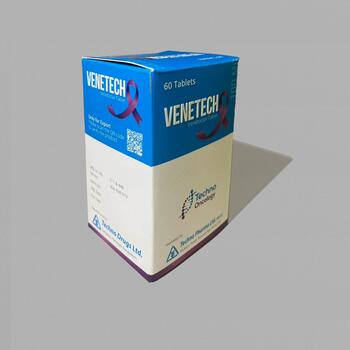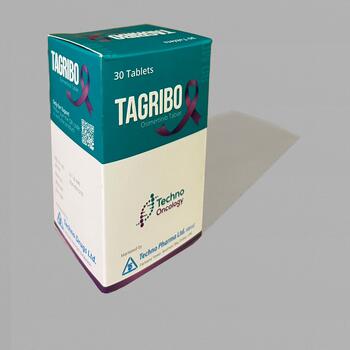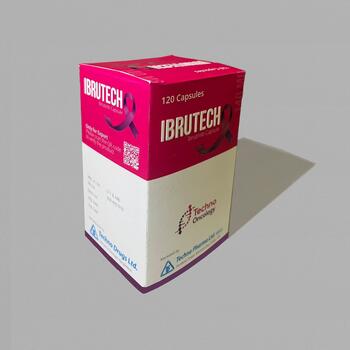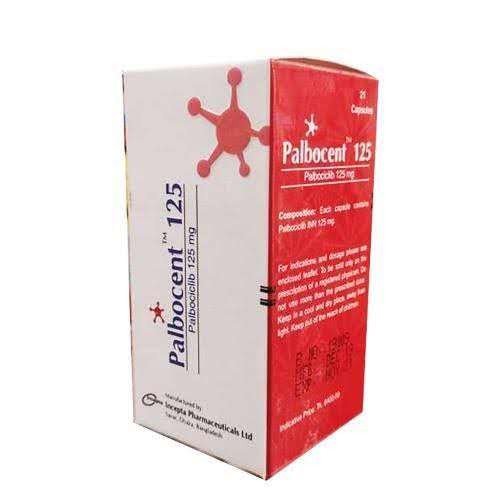劳拉替尼;( Lorlatinib)25mg
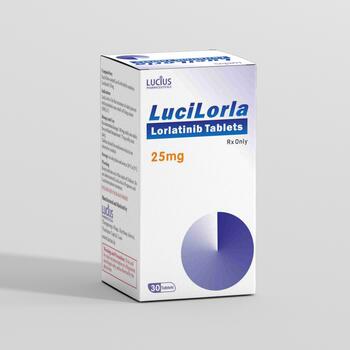
1. Composition:
Lorlatinib is a third-generation ALK and ROS1 tyrosine kinase inhibitor (TKI) specifically used for treating patients with non-small cell lung cancer (NSCLC) that carries ALK (anaplastic lymphoma kinase) or ROS1 gene rearrangements. Lorlatinib is an orally administered small molecule drug that can penetrate the blood-brain barrier, showing significant effects on brain metastases.
2. Indications:
Lorlatinib is primarily used for the treatment of advanced or metastatic NSCLC, especially in patients who have developed resistance after treatment with first- or second-generation ALK inhibitors. Additionally, Lorlatinib is notably effective in ALK-positive NSCLC patients with brain metastases, as it can penetrate the blood-brain barrier to control brain lesions.
3. Usage Instructions:
- Oral Administration: Lorlatinib is available as an oral tablet, with a recommended dose of 100 mg per day, to be taken on an empty stomach or with meals. The medication should be taken at the same time each day, with efforts made to avoid missing doses. If a dose is missed or vomiting occurs, the patient should continue with the next scheduled dose and not take extra medication.
- Treatment Duration: Patients should continue using Lorlatinib under the guidance of a physician until disease progression or intolerable toxicity occurs. Regular imaging and blood tests should be conducted during treatment to assess efficacy and adverse reactions.
4. Research and Development History:
- Research Background: Lorlatinib was developed by Pfizer and is a new generation of ALK/ROS1 inhibitors following crizotinib and alectinib. Although the first two generations of ALK inhibitors (such as crizotinib) can control ALK-positive NSCLC, many patients eventually develop resistance, particularly when brain metastases occur. The development of Lorlatinib aims to address these resistances and enhance efficacy against brain metastases.
- Approval and Market Launch: In 2018, the U.S. FDA granted accelerated approval for Lorlatinib for the treatment of ALK-positive metastatic NSCLC patients who have progressed after at least one ALK inhibitor treatment. The development and approval of this drug provide new treatment options for patients who have developed resistance after multiple therapies.
5. Mechanism of Action:
Lorlatinib selectively inhibits ALK and ROS1 tyrosine kinases, blocking the growth of cancer cells caused by these mutations or gene rearrangements. Many NSCLC patients have mutations or rearrangements in the ALK gene that activate abnormal signaling pathways, promoting tumor growth. Lorlatinib effectively interrupts these signaling pathways, slowing tumor growth.
6. Summary:
Lorlatinib is a third-generation ALK and ROS1 tyrosine kinase inhibitor specifically designed for the treatment of ALK-positive NSCLC and ROS1-positive cancer patients, particularly suitable for those who have developed resistance after first- or second-line ALK inhibitor treatments. It can effectively penetrate the blood-brain barrier, thus demonstrating significant efficacy in patients with brain metastases. Despite its remarkable efficacy, the drug may cause adverse effects such as dyslipidemia, neurological issues, and cardiac dysfunction, requiring close monitoring of patients during treatment. The introduction of Lorlatinib offers a new treatment option for advanced lung cancer patients with ALK or ROS1 gene mutations.



